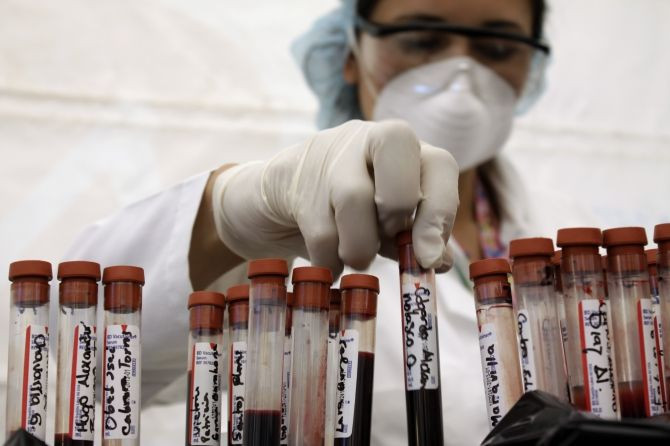US Panel Recommends HIV Screening for All Americans

The U.S. Preventive Task Force issued a draft recommendation on Monday proposing HIV screening for all people between ages 16 and 65.
An estimated 1.2 million people in the U.S. have HIV, but 20 to 25 percent of the population doesn't know that it is at risk, says a statement from USPTF.
The task force also recommended that children and older adults who are at an increased risk of contracting the infection be screened as well.
"We really need to find the people who are infected and get them on therapy. It will make their lives better. And once they're on treatment, they're no longer spreading the virus," said John Bartlett, a professor at the Johns Hopkins School of Public Health in Baltimore, reports USA TODAY.
USPTF says that early detection of the infection can help people begin early treatment.
"The draft recommendation reflects new evidence that demonstrates the benefits of both screening for and earlier treatment of HIV," said Dr. Douglas K. Owens, M.D., M.S, a member of the Task Force.
Experts say that introduction of universal HIV screening will take away the stigma that's attached to the test, and this is especially important for teenagers. A regular test for HIV "helps to create an environment where HIV testing is another medical screening test, not something so special," said Dr. Patricia J. Emmanuel, a pediatric infectious disease specialist at the University of South Florida in Tampa. She had co- written the 2011 American Academy of Pediatrics guidelines that recommended HIV testing for people 16 years and older.
According to the World Health Organization, potent antiretroviral therapy (ART), especially if given at early stages, can reduce rates of death and suffering. ART consists of three antiretroviral drugs that suppress the virus and prevent the disease from spreading.
"Because HIV infection usually does not cause symptoms in the early stages, people need to be screened to learn if they are infected. People who are feeling well and learn they are infected with HIV can begin treatment earlier, reduce their chances of developing AIDS and live longer and healthier lives," Dr. Owens said.
People can post comments on the draft from November 20 to December 17 at this link.



























